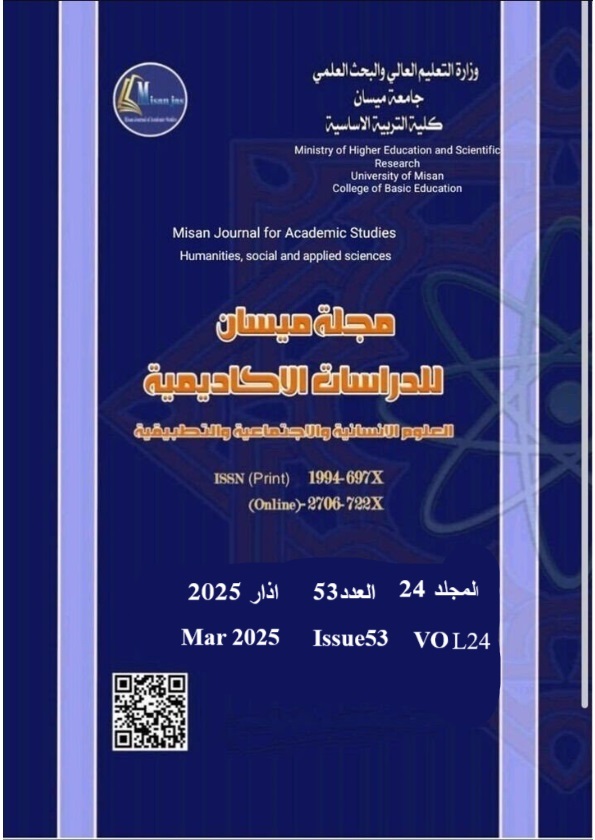The Reasons Behind the Societal Reversal on the Governance of Amir al-Mumineen After the Prophet’s Death (Peace (PBUH)) Through the Sermons of Lady Fatima al-Zahra
Abstract
The research into the doctrine of Lady Fatimah al-Zahra (peace be upon her) on the subject of succession and leadership after the Prophet (peace and blessings be upon him and his family) is among the important topics in the history of Islamic doctrine. This is due to the Fatimid discourse's Islamic vision of the significance of the guardianship of the infallible Imam over the nation after the death of the final Prophet. It also highlights the Quranic and prophetic foundations for the infallible leadership of Amir al-Mu'minin Ali ibn Abi Talib (peace be upon him) and identifies the reasons that led society to turn away from this guardianship.The study analyzes her speeches delivered to the people of Medina after the death of her father (peace and blessings be upon him and his family), in which she denounced the exclusion of Imam Ali (peace be upon him) from his rightful position as the leader of the nation. She also pointed to the grave consequences of this deviation from one of the fundamental principles of Islam: the position of the infallible guardian.The research adopts an analytical approach to Fatimah's speeches alongside an inductive method to examine and interpret the texts, aiming to uncover the variables, factors, and circumstances that led society to deviate from its previous state by sidelining the Imam of their time from leadership. It also explores the internal and external forces that contributed to this outcome. The study concludes with several findings summarized in the research's conclusion.
Downloads
Copyright (c) 2025 (Humanities, social and applied sciences) Misan Journal of Academic Studies

This work is licensed under a Creative Commons Attribution-NonCommercial-NoDerivatives 4.0 International License.
The copyright is also the copyright of the magazine only.
All articles published in our magazine are subject to license terms
Creative Commons Attribution(CC BY-NC-ND 4.0) This license permits the content to be reproduced, redistributed and reused in whole or in part for any purpose free of charge, without any permission from the author(s), researcher or student.
Works submitted to Maysan Journal of Academic Studies for publication in the journal (CC BY-NC-ND 4.0) license terms. Where available content can be shared, distributed and replicated provided there is no commercial profit and appropriate credit must be given to the original source through sources or citations. It is mandatory to review any material used from other sources including shapes, tables, and images for re-use under the terms of the Creative Commons License (CC BY-NC-ND 4.0).Provided that there is no modification to the original content



